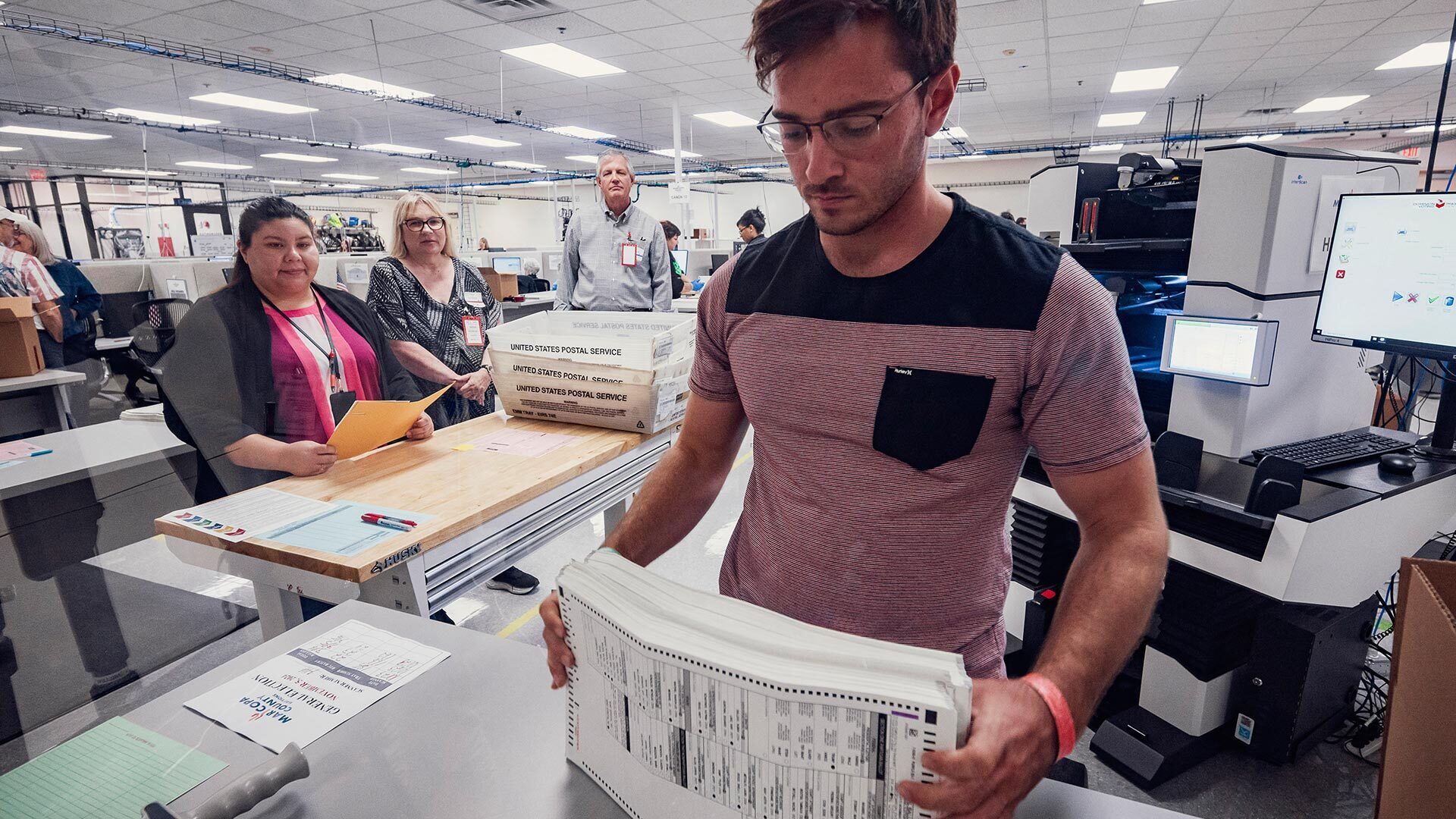- November 01, 2024
- By Daniel Davis
Veterans and military family members (VMF) who serve in election jobs, including as poll workers, strengthen public trust in the fairness, security and safety of elections, finds a new study by the University of Maryland’s Center for Democracy and Civic Engagement (CDCE) and nonprofit partner We the Veterans and Military Families.
CDCE’s Aug. 29-Sept. 9 survey of a national sample of 1,263 voting-age U.S. citizens randomly assigned participants to read one of two scenarios in Maricopa County, Arizona—a place where election administration was under close scrutiny in 2020. One scenario described the area making efforts to recruit local VMF to serve in election jobs, and the other described standard election worker recruitment from the local community. One of the standout results was a 7% increase in the number of survey respondents who expressed confidence that votes would be counted as intended when they knew VMF were part of the election workforce. The increased confidence among those who were presented with the VMF scenario was more pronounced among respondents who said that they previously doubted the legitimacy of Joe Biden's election—such respondents had 15% more confidence than those presented with the standard recruitment scenario.
The survey also showed that recruiting veterans and military families to work in elections improved election officials' approval ratings. Overall approval ratings increased by 5%, with an 8% increase in those expressing "strong approval" of election officials when veteran recruitment was mentioned.
Participants informed about VMF recruitment were also 9% more likely to believe that election workers would be "very committed" to making sure the elections held this November are fair and accurate.
Concerns about potential violence, threats and intimidation at polling places were significantly reduced among the VMF scenario respondents, with 8% fewer participants expressing concern about these risks compared to those who were told that the county was just recruiting poll workers from the local community.
"That sizable portions of the public lack confidence in our elections is a serious problem," Michael J. Hanmer, a professor in UMD’s Department of Government and Politics and director of the CDCE, said in a release about the study. "Our study provides powerful evidence that recruiting veterans and military family members to work at polling places not only strengthens public trust in the process but also addresses concerns about potential threats to election security and violence at the polls."
Seventy-seven percent of respondents indicated they would like their own communities to adopt VMF recruitment strategies, and the researchers said election officials who are already doing so should publicize it.
“We encourage election officials nationwide to actively recruit veterans and military family members to be part of this essential civic duty,” said Ben Keiser, co-founder of We the Veterans and Military Families and a 2000 alum of the Department of Criminology and Criminal Justice.
The survey also tested other recruitment groups, such as lawyers and college students, but still found that veterans were more likely to inspire public confidence in election integrity.“There might be less concern over fairness and accuracy of elections when it is put in the hands of people who are assumed to be like the veterans you know and trust, and ease safety concerns, given the knowledge that veterans are a known group of people who have all, at one point in time, taken an oath to defend the U.S. Constitution, and to bear true faith and allegiance to the same,” said Gregory Isaiah Espinoza, a Marine veteran and CDCE research fellow.
Visit UMD's 2024 Election Headquarters for more resources, news and events.
